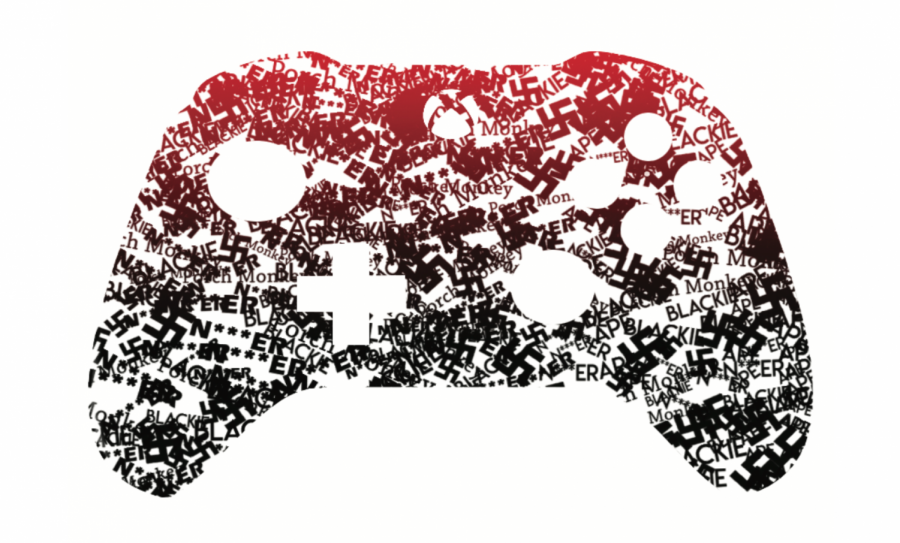OPINION: Toxic gaming communities must face real consequences if we expect to see change
Khanlin Rodgers – The State Hornet
Although online video games are meant to be a means of escape and entertainment, many players are subjected to unwanted language and harassment at the hands of their online competitors.
November 1, 2017
I was 11 years old the first time that I managed to secure an internet connection fast enough for me to play my Playstation 2 online. The brown-skinned character I had created to represent myself in the game was ready to step into the new frontier of online gaming, and so was I. Or at least I thought I was.
Before long, much of my free time was consumed by chasing new virtual adventures with my friends and besting my opponents in competitive arenas. I quickly found out, though, that I wasn’t quite ready for the backlash I would face simply by participating in a hobby I thought was meant for everyone to enjoy.
RELATED: Students form local gaming hubs at Sacramento State
If you’re at all familiar with the culture of online gaming, you know all too well how vile some people can be over voice chat. For those of you who haven’t had any first-hand experience, well, it can get bad. Really bad.
“Can we please kick this dumb n****r from the group.”
The message scrolled across the chat box at the bottom of the screen after I had failed to complete my task in my raid group and made the whole team start the boss fight over again for the fifth time.
The N-word, and a plethora other slurs I had never even heard before, soon became the norm for me after this incident. The one thing that my family had taken every precaution to shield me from eventually became a part of my daily interactions online.
RELATED: REVIEW: The SNES Classic has something for everyone
Obviously, people spewing their ignorant, hateful sentiments online is nothing new, but the problem seems to have gotten significantly worse over the course of the past year.
Blizzard Entertainment, the studio behind the competitive game “Overwatch,” has actually had to halt development on new content for the game in order to focus their time on combating the sexism and racism within the community.
Felix Kjellberg, owner of the #1 subscribed YouTube channel, “PewDiePie”, is also guilty of using racial slurs. Last month, he called one of his opponents the N-word while live streaming. He promptly uploaded a shallow apology video after receiving negative criticism and claimed that the word just “slipped out.” Afterwards, there were no consequences for him at all.
Slurs like this don’t just “slip out” though. Most people, no matter how frustrated they are in a competitive setting, don’t resort to racial slurs as an insult. Unless, of course, racial slurs are already a part of their everyday vocabulary.
Even though racism and sexism are blights to the gaming community as a whole, there’s no surefire way to combat them without holding people accountable.
Between the anonymity that the internet provides and the current state of race relations in our country, it’s no surprise that people online are brazen enough to say things that they likely wouldn’t in person.
However, we won’t make any progress until the issue is treated with the attention it deserves, and perpetrators of the problem are met with more than just a slap on the wrist.






























































































































Clark Crossley • Nov 1, 2017 at 1:36 pm
You can’t expect players to do anything, the only way I see the abuse/harassment stopping to any degree is to police the games. Literally.
Most public places that accommodate the masses usually do so with the help of police and security, this seemingly applies to large gaming communities. If a player let’s a slur slip then it get’s seen and/or heard and that player will be dealt with immediately. When players realise that bad behaviour is being monitored then I think maybe things will improve on the surface at least.
That said, you won’t cure the hate, that’s here to stay.